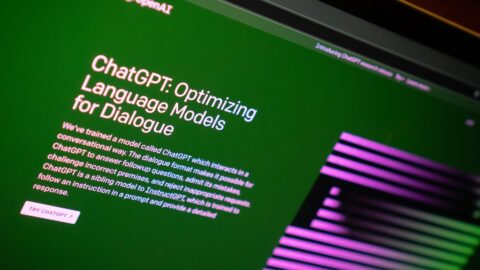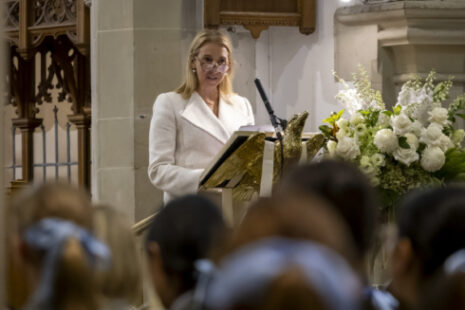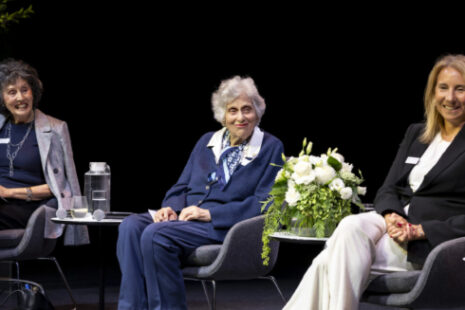Let’s ‘Chat’ ChatGPT

What is ChatGPT?
Let’s Chat, ChatGPT. ChatGPT, an Artificial Intelligence (AI) emerging technology, has created much ‘chatter’ and debate on its educational merit. “This technology is capable of instantly answering questions (in fact, composing writing in various genres) across a range of fields in a conversational and ostensibly authoritative fashion. Utilizing a type of AI called a large language model (LLM).” (Powell, 2023)
The government has temporarily banned the use of ChatGPT in state schools while it analyses the implications of the emerging technology. I hope that I can dispel some of the ‘media hype’ around this technology and examine how St Catherine’s sees this emerging technology and how we can educate our students on being judicious and evaluate any use of ChatGPT for their learning at School, university and in their future workplaces.
There are some who are concerned that these emerging technologies are creating a new way for students to plagiarise and cheat, hence diminishing their capacity to learn and think. However, our view is that these technologies (like the many that have come before ChatGPT) allow opportunities for educators to engage students in deeper learning that develops critical thinking and inquiry skills. If ChatGPT is banned outright, then how do we as educators allow students to develop the skills and knowledge to understand this technology and make sure they are discerning in their use of it?
At St Catherine’s I constantly discuss that as a school we embrace innovation and change. ChatGPT provides an opportunity for schools and tertiary institutions to evaluate their assessment models and examine other ways for students to demonstrate their learning.
Steven Pinker, Professor of Psychology at Harvard University believes ChatGPT is “truly impressive – and will be even more so once it stops making stuff ups and becomes less error-prone.” His research shows that ChatGPT “makes elementary errors of common sense and blunders.” I would agree.
When I asked ChatGPT to search up poetry that focuses on the theme of surveillance for a VCE English Unit of Study, it provided me with a list of poems which looked quite impressive. However, on searching the poems it had not titled any correctly and in fact, most of them had nothing to do with surveillance. Unhelpful to say the least.
As Pinker comments “We’re dealing with an alien intelligence that’s capable of astonishing feats, but not in the manner of the human mind.” ChatGPT is no substitute for human thinking, inquiry, and learning.
How can we use ChatGPT in classes?
- As a search engine, a tool for initial information retrieval.
- Helping students learn a new language by providing translations or explanations of difficult grammar concepts.
- Generating multiple-choice or short-answer questions.
- Providing examples of writing when setting assessments. However, these responses are short and do not contain evidence.
- Generating creative discussion starters and questions.
- Assisting some students by generating initial topic sentences or ideas for writing.
- Simplifying complex explanations.
Education on ChatGPT
We need to teach students that like other search engines they have used for many years, ChatGPT is a tool that must be evaluated for its credibility.
It does make errors and provide inaccurate responses, just like any other technology. We should all monitor students’ interactions with ChatGPT. This exponential growth in technology is an opportunity to improve learning and teaching, especially if teachers and students have open conversations about how AI might be used.
This is a goal for 2023, educating our teachers and students on ChatGPT. We want students to be able to think and learn for themselves, using ChatGPT as a tool and not becoming reliant on it. As educators, we are also thinking critically about the ethical implications of using these technologies.
Future Impact of ChatGPT
Perhaps ChatGPT will force a shift away from the over reliance on summative assessments, tests, and examinations. This would allow more students to demonstrate their learning in a less traditional model of assessment that does not rely on memorisation and recall. This can only be a positive I feel. Furthermore, our graduates will need to be educated on these emerging technologies for tertiary studies and future careers.
Interestingly, even ChatGPT understands its own place as when I asked it to answer how it should be used in education, it responded:
“It’s important to note that while ChatGPT can be a useful tool for teachers and students, it’s not a replacement for human interaction and feedback. Teachers should use ChatGPT in conjunction with their own expertise and guidance to ensure that students are receiving a well-rounded education.”
It realises that it is a tool used in conjunction with humans and just like other educational technologies, we can co-exist. In fact, Pinker (2023) reflects that it “might deepen our appreciation of what human understanding does consist of when we contrast it with systems that superficially seem to duplicate it, exceed it in some ways, and fall short in others.”





